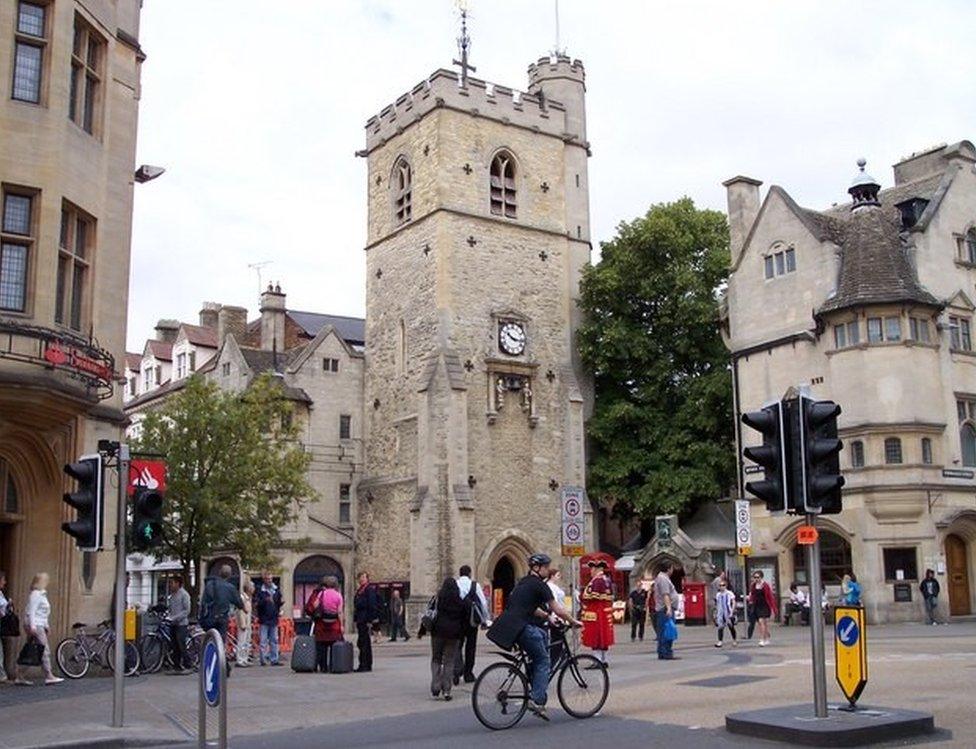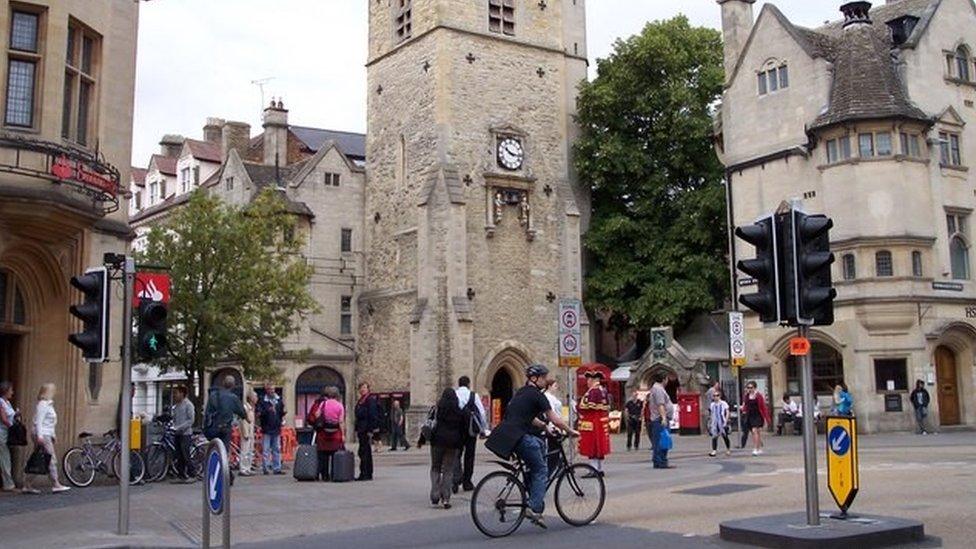Oxford's Local Plan: Inspectors approve 11,000 city homes plan
- Published

Planning permission is usually not granted to buildings exceeding the height of the Carfax tower
Planning inspectors have approved a house building plan in Oxford, which would see about 11,000 new homes and taller buildings in the city.
Oxford City Council's Local Plan 2036, external includes proposals for affordable homes and zero carbon developments.
Planning inspectors called it "fully justified" by the city's "very clear inequalities of access to housing".
But one campaigner said the council had "passed their driving test but then deliberately drove over the cliff".
Policies include:
Delivering 10,884 homes within the city boundaries
Building a minimum of 100 dwellings per hectare in the city centre on previously developed land
Building 50% of affordable housing on developments of 10 or more
Allowing affordable homes to be developed by the NHS, schools and universities for employees on their land
Purpose-built student accommodation to only be allowed on existing university or college sites
The inspector's report said the plan struck a "balance between the needs" of "many important land uses" while "protecting the character of the city".
Alex Hollingsworth, cabinet member for planning, said it would mean "young people can afford to live and work in their home city".
He added: "It prioritises walking, cycling and public transport to help tackle congestion and pollution on our streets.
"The local plan aims to preserve what makes Oxford a fantastic place... our world-famous heritage, our community, leisure and cultural facilities, and our network of parks, green spaces and waterways."
But Michael Tyce, Campaign to Protect Rural England (Oxfordshire) trustee, said the plan, external was "against the public interest" and described the planners as "lemmings" following their leader "off the cliff to certain doom".
He said it meant "losing swathes of Green Belt open space inside the city to development and even vaster swathes around the city's edge to urban sprawl".
According to property website Zoopla, the average house price in Oxford is £510,995. The UK average is £319,967.
A full council meeting will discuss whether to adopt the plan on 8 June.
- Published18 October 2018
